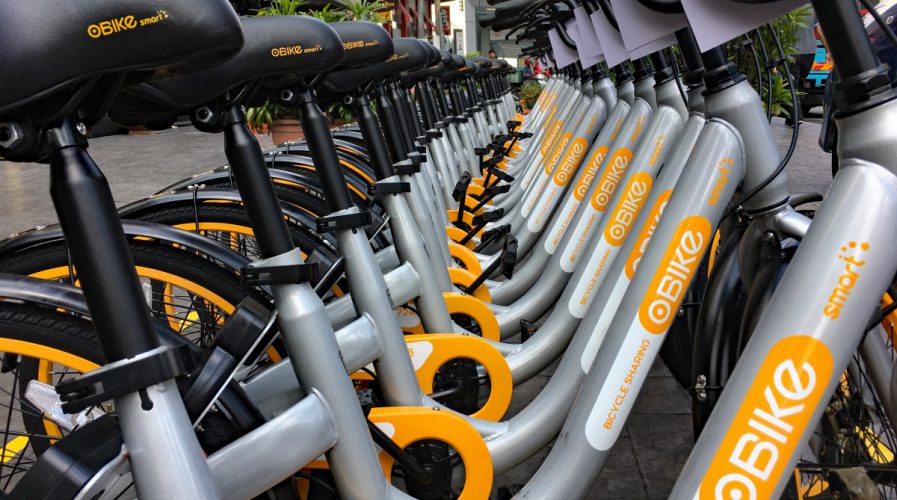
oBike has emerged as a dominant player in Southeast Asia and has just claimed an investment from Uber. Source: Shutterstock
Grab’s investment in Singapore’s oBike a sign the market is shifting
THE CONSOLIDATION of Asia’s transportation startup continues with the revelation that Grab has quietly made an investment in Singapore’s first dock-less bike startup, oBike.
The news, as reported by TechCrunch, revealed that an inside source said that the ride-hailing startup was part of the bike-sharing startup’s Series B fundraising round back in August that garnered US$45 million. Grab was not immediately revealed to be part of the round.
The deal, while not out of the ordinary, is interesting as it’s the latest development in a string of complex investments that is creating an incestuous network of partners and patrons within the region. It’s also bringing ostensible rivals into bed with one another, and it could set the stage for some difficult future dealings if any of these companies ever decide to exit.

For one thing, oBike is a direct competition with China’s Ofo, which claims Didi Chuxing as an investor – Didi, of course, has plugged some big bucks into Grab itself almost since the beginning, though that’s also been turned into an awkward relationship since Didi took over Uber’s China operations.
SEE ALSO: Grab is SEA’s most valuable startup with US$2b investment from Didi Chuxing, Softbank
Let’s also not forget that Softbank’s Vision Fund, that sweet pile of tech-focused money sitting in Masayoshi Son’s hands, has also been double dipping: the company had previously invested US$2 billion in Grab with Didi, though there’s also news that they’re close to giving Uber some love as well.
In any case, though it’s not really clear what’s the purpose of Grab’s investment in oBike, what is evident is that the services throughout the region are all looking to capture whatever market control they can get. It’s significant that Grab and oBike itself aren’t even in the same vehicle category, but what we could imagine is the emergence of a kind of single-app ecosystem where users can switch between travel options easily.
The deal itself is particularly remarkable except for the fact that it may be a signal that the consolidation cycle in the space is beginning to turn It’s likely that the partnerships themselves are to ensure that foreign players don’t manage to grasp a way into the region, and it’s not hard to imagine that some time in the near future, one of these companies will begin pushing for more control over the region.
READ MORE
- Strategies for Democratizing GenAI
- The criticality of endpoint management in cybersecurity and operations
- Ethical AI: The renewed importance of safeguarding data and customer privacy in Generative AI applications
- How Japan balances AI-driven opportunities with cybersecurity needs
- Deploying SASE: Benchmarking your approach
